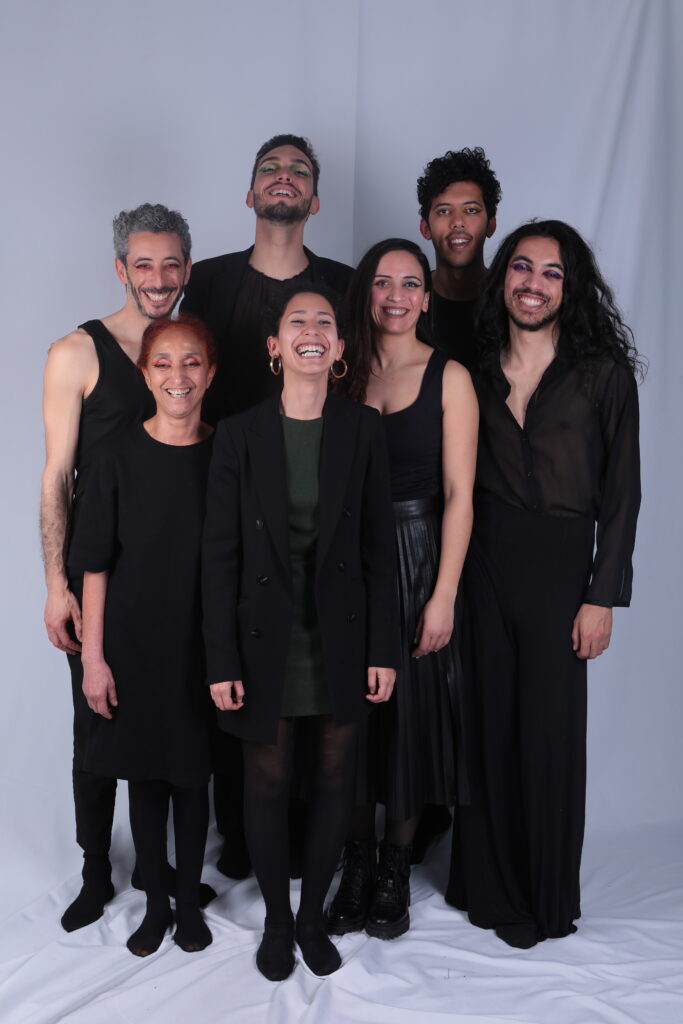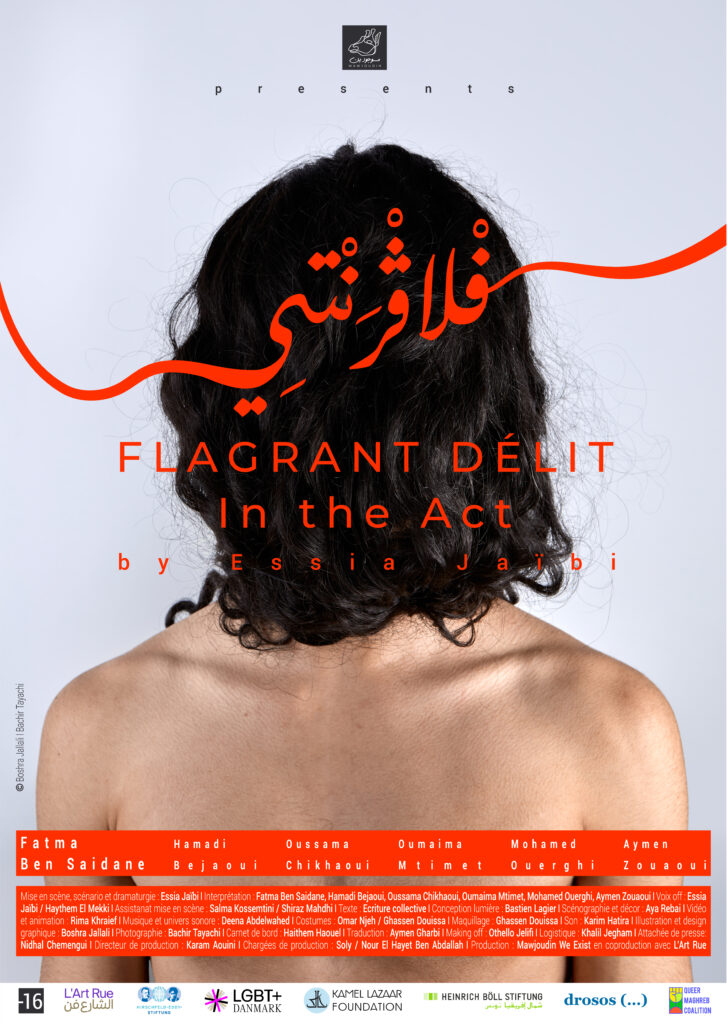FLAGRANTI
Flagranti is a fiction based on an alarming reality, that of the LGBTIQ+ community in Tunisia.
The idea originally came from the organization Mawjoudin We Exist; “We want to create a Queer play in Tunisia”.
I directly took this project as a challenge and a responsibility.
I chose to show a group of people diverse in age, profile and orientation, connected by an important factor: friendship.
At first, everything seems normal, the audience meets people who live a “normal life”: they study, work and go out in Tunisia.
But it does not take much for everything to shift.
Flagranti is the story of this shift, of this point of no return, where we dive in the universe of police stations, hospitals, brutal interrogations, retrogressive laws and of trivialized injustice.
Stakes are at the same time activist, esthetic, political and societal, as the main question I asked myself was: how to address Tunisia’s biggest taboo and ultimate forbidden act through theatre?
Didacticism was therefore an evident choice to me, as we face collective ignorance around the topic, decades of invisibilization in the media, family and school, but also centuries of demonization of an entire group of people, religiously, morally and legally.
The show takes on the didactic tradition in theater, revisited through various mediums (video, illustrations and sound), like a conference to explain certain notions and shed light on some practices and laws. The tale is then interrupted, whenever necessary, by explanatory and offbeat parentheses, enabling all audiences to see the show while understanding what it is about and having the right tools to analyze the topic. Between fiction and didacticism, severity and humor, emotion and sobriety, Flagranti plays on a thread and creates a sweet-sour relationship with the audience. Flagranti is a show that settles, unravels and asks many questions, one of the key questions being: In what country do we want to live in? And how do we make this possible?
Essia Jaïbi
Interview with Essia Jaïbi, the play's director and playwright, for Faza.
Performances: Fatma Ben Saidane, Hamadi Bejaoui, Oussama Chikhaoui,
Oumaima Mtimet, Mohamed Ouerghi, Aymen Zouaoui
Voice over : Essia Jaibi, Haythem El Mekki
Staging assistantship: Salma Kossemtini, Shiraz Mahdhi
Text: collective writing
Light conception: Bastien Lagier
Scenography and stage set: Aya Rebai
Video and animation : Rima Khraief
Music and sound universe : Deena Abdelwahed
Costumes: Omar Njeh, Ghassen Douissa Make-up : Ghassen Douissa
Illustration and graphic design: Boshra Jallali
Photography: Bachir Tayachi
Logbook: Haithem Haouel
Translation: Amal Ellouze
Behind-the-scene: Othello Jelifi
Logistics: Khalil Jegham
Press officer: Nidhal Chemengui
Production Director: Karam Aouini
Production managers: Soly, Nour El Hayet Ben Abdallah
Production: Mawjoudin We Exist, in co-production with L’Art Rue
Interview with Essia Jaïbi and part of the cast of the play for BRUT Tunisie.
Le Monde Afrique
“ A daring piece in an Arab-Muslim society where freedoms are more and more violated, to see and review. ”
Tekiano
“ Flagranti by Essia Jaibi, is a play where we remain amazed for almost two hours… Two hours where we are captivated, moved, but deeply disturbed. ”
Binetna
“ […] a real wake up call for change, a beautiful, raw, and honest depiction of the queer struggle in hopes to decriminalize same-sex relations, and restore justice. ”
Mille
Le Monde
“ This is a historical moment in this country! Displaying such an event in an Arab Muslim country is not an easy task ”
Eurnonews
“ In nearly two hours, the director seeks to restore the pain of a community that cannot live as freely as they would like. ”
Middle East Eye
“ FLAGRANTI – Against the odds, a queer play premieres in Tunisia ” KET MAG

